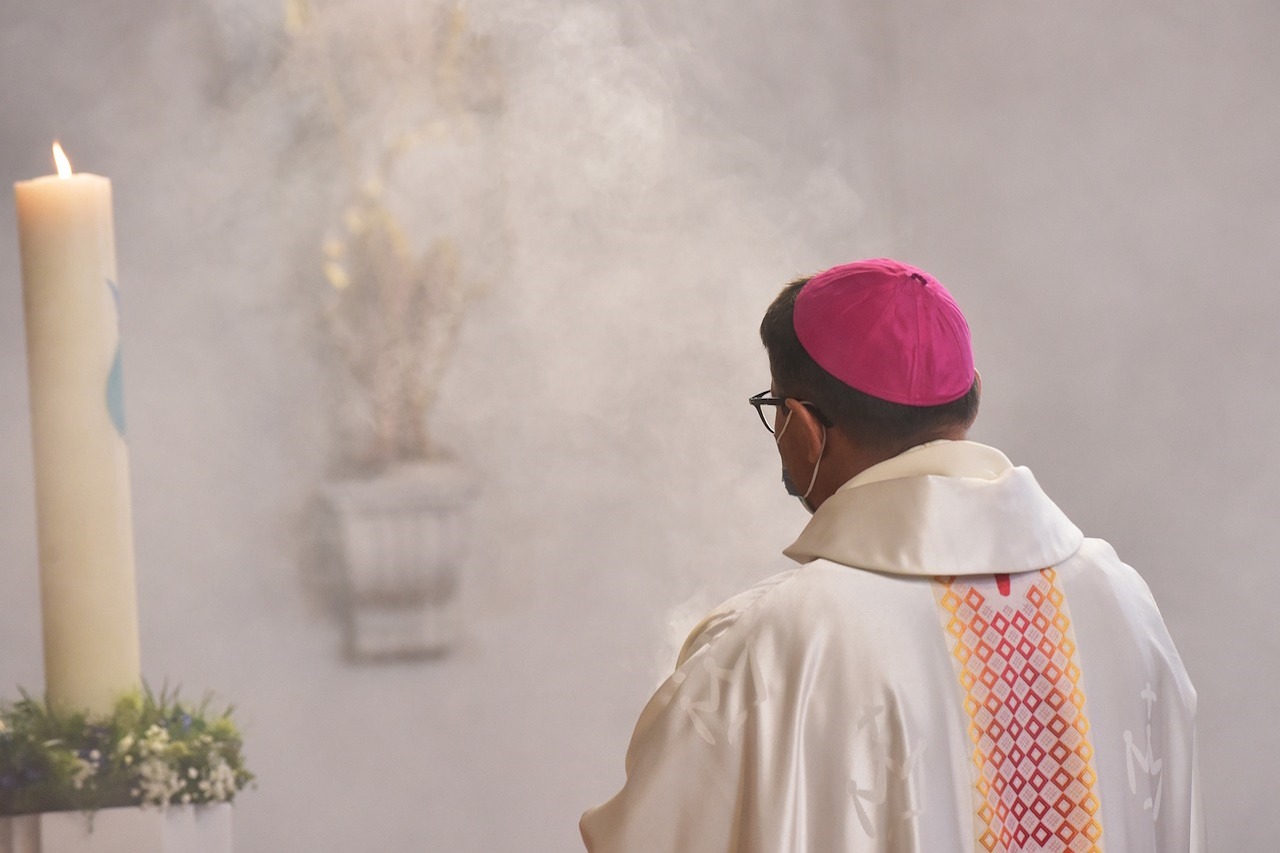Jeremiah 20: 7-9 (RM) or Jeremiah 15: 15-21 (RCL); Psalm 63 (RM) or 26 (RCL); Romans 12: 1-2 (RM) or Romans 12: [1-2] 19-21 (RCL); Matthew 16: 21-27 (RM) or 21-28 (RCL).
Some years ago, I was invited to do a live, on-air radio interview with Hallie Cottnam, host of CBC “Ottawa Morning.” The interview was going well enough when suddenly out of nowhere I heard, “So Pope Francis is in favour of social justice instead of liturgy?” (or some such.) Liturgy hadn’t come up before that, and this was a completely different direction than the producer and I had discussed in an hour-long phone call the day before
Suddenly every instinct in my liturgist’s soul went on full alert, and I replied with enthusiasm, “Oh no, liturgy is the place where everything comes together – the community and the personal, theology and spirituality, music, poetry and visual arts, scripture and the world today …” And they couldn’t go to break fast enough.
A few days later I was amused to learn that the Archbishop of Ottawa had heard the interview. Apparently he said to a few of his courtiers, “They set her up.” Indeed, they did. And, with no intentional malice on my part, they paid for it.
Thus ended my broadcasting career at the CBC.
The relationship between social justice and liturgy comes to the fore in the section of Paul’s Letter to the Romans we’ve been hearing as the Second Reading. To make this work however we have to paste together the passages from both the Roman Missal and the Revised Common Lectionary. The one leads to the other.
Just in the first verse, two unremarkable words in the English translation hide a wealth of rich meaning. “The mercies of God” in Hebrew was rahemim, compassion, more specifically “womb-compassion” – the powerful, tender, organic compassion of a mother for a child. And “bodies” in the phrase “offer your bodies as a living sacrifice,” sarx in Greek, means the whole self. This giving-over of the whole self is “holy and acceptable.” This is spiritual (a world away from an animal sacrifice!) in nature because it represents the entire inner logos: mind, reason, soul, heart, all organically flowing from and into the natural metabolism of the body. Each of these expressions is anything but shallow, and each is embedded in body-wisdom. The language Paul uses points to the cultic character of upright ethical behaviour, not only to smooth over difficulties the Christian community in Rome was undergoing, but as the logical extension of common prayer and the breaking of the bread. The transformation and renewal of one’s mind begins in baptism and carries through every conscious choice throughout one’s life. Ultimately Paul is pointing to a life richly and fully integrated with the Holy, acting and living in concert with what is holy, not to a sacrificial death.
But complete surrender requires complete trust. Just who is this God? How can we trust God when so often the will of God seems to go awry and events in our lives and our world seem to careen recklessly out of control? How can we trust a patriarchal dominator God? Paul, using ideas from his own culture and Greek Stoic thought, puts it his own way: what is Holy is moving toward a wholeness and fullness we don’t see here and now. If we as baptized, Christ-like persons, are to live into the developing reality, it means taking distance from what we see around us here and now, and taking stock of what sort of behaviour, what choices, what priorities, are consistent with that infinitely wider reality.
And that’s where the intense cultic body-wisdom language of the first verses flows into verses 9-21 with their little bitty snippets of advice. The points Paul makes clearly come from what he’s heard about problems in that Christian community in Rome. But the overall meaning is clear – we live by what we know, and what we pray, as the deepest living truth.
Alice Walker, In Search of Our Mothers’ Gardens, writes,
“Anybody can observe the Sabbath, but making it holy surely takes the rest of the week.”
© Susan K. Roll
Susan Roll retired from the Faculty of Theology at Saint Paul University, Ottawa, in 2018, where she served as Director of the Sophia Research Centre. Her research and publications are centred in the fields of liturgy, sacraments, and feminist theology. She holds a Ph.D. from the Catholic University of Leuven (Louvain), Belgium, and has been involved with international academic societies in liturgy and theology, as well as university chaplaincy, Indigenous ministry and church reform projects.




